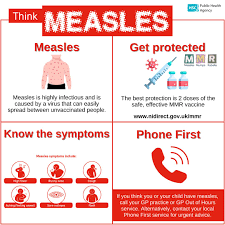Recognising Measles Symptoms: Key Information for Parents

Introduction
Measles is a highly contagious viral infection that poses significant health risks, particularly for unvaccinated individuals and young children. Recent outbreaks have raised public health concerns, making it crucial to understand the symptoms associated with measles. In order to prevent infection, it is essential for parents, caregivers, and the general public to be informed about the early signs of this disease.
Main Symptoms of Measles
The symptoms of measles typically appear 10 to 14 days after being exposed to the virus. The onset begins with mild symptoms that rapidly escalate. The first symptoms usually include:
- High Fever: The fever often rises above 38.3°C (101°F).
- Cough: A persistent dry cough is common.
- Runny Nose: Nasal congestion and a runny nose are typical early signs.
- Conjunctivitis: Red, watery eyes may accompany early symptoms.
As the infection progresses, a characteristic rash appears. This typically starts behind the ears and on the face before spreading to the rest of the body. The rash usually develops about 3 to 5 days after the initial symptoms and can last for up to a week.
Potential Complications
Measles can lead to severe complications, including pneumonia, encephalitis, and ear infections, particularly in malnourished children and those with weakened immune systems. Understanding these serious outcomes highlights the importance of early recognition and medical intervention.
Importance of Vaccination
Vaccination remains the most effective way to prevent measles. The MMR (measles, mumps, rubella) vaccine is highly effective, with two doses providing 97% immunity against measles. Health authorities are increasingly urging parents to ensure their children are fully vaccinated to protect not only their health but also the health of the community.
Conclusion
Recognising the symptoms of measles is vital for swift action to combat this contagious disease. Vigilance in observing the early signs, combined with community-wide efforts to vaccinate, can significantly reduce the occurrence of measles outbreaks. As public health officials emphasize, prevention through vaccination is critical—not only for individual protection but for the well-being of society as a whole.









